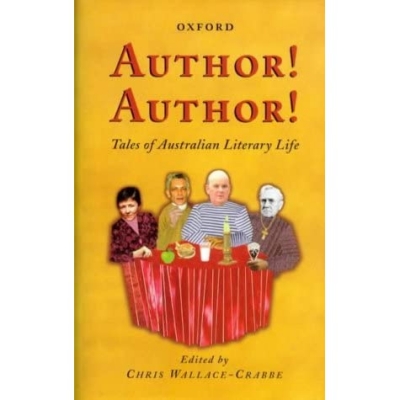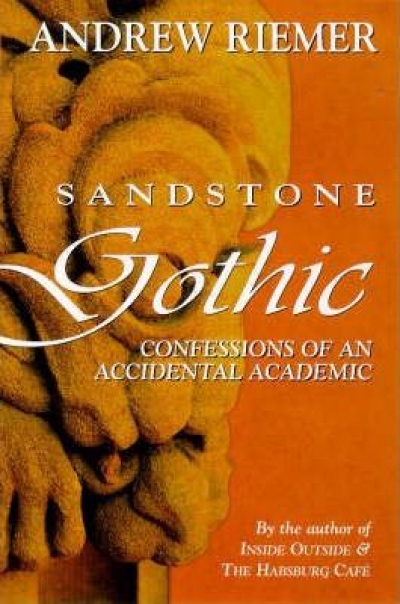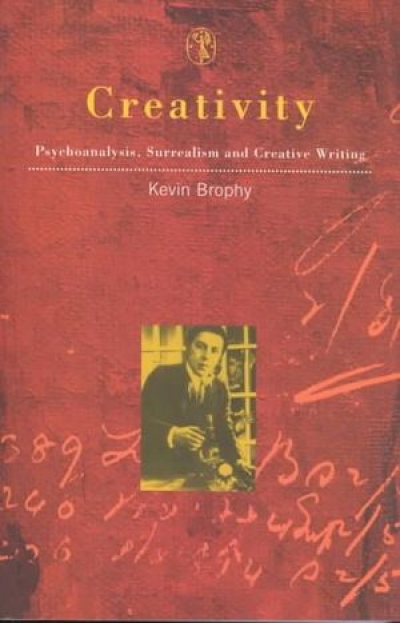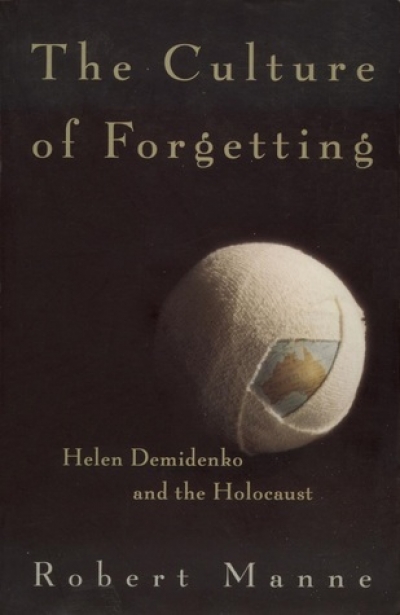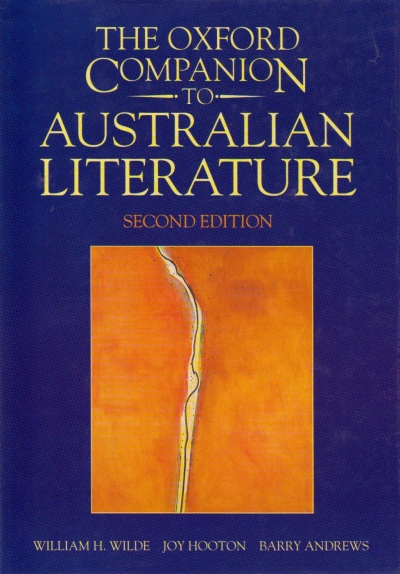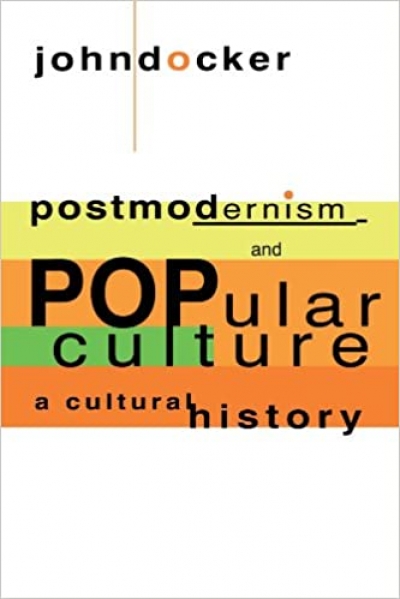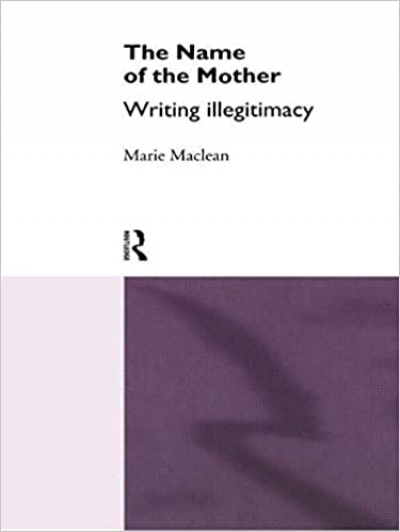Literary Studies
Author! Author!: Tales of Australian Literary Life edited by Chris Wallace-Crabbe
‘Anecdotes’ meant originally ‘the unpublished’ – sometimes, no doubt, the unprintable. Nowadays we think of them as being tales which have something or other up their sleeves: a morsel of irony, a pinch of encouragement, a gesture of affectation. Anecdotes are yarns which have had a couple of drinks.
... (read more)State of mind: it’s a simple phrase but it is one which has always interested me. ‘State of mind’ is about what? Sets of feelings? Predispositions and moods? Or perhaps more it’s a term to do with the groove which thoughts regularly follow along. A state of mind is one which makes you respond in a particular way: you tend to act in a particular way; you have recurrent feelings.
The phrase interests me because it defines a feeling so intimate – so normal and everyday. Indeed, it is so intimate that it becomes difficult to say what a state of mind is. What are its boundaries? Where does it stop? Is this mind-set just mine or is it something to do with events out there, the latest news about the economy, the extravagant telephone bill which has just arrived, the relaxed feeling of walking along a beach, a recent argument, an enjoyable dinner party? For however influential and pervasive states of mind are, they are also fluctuating, amorphous things.
... (read more)Sandstone Gothic: Confessions of an accidental academic by Andrew Riemer
In retrospect it’s not surprising that Andrew Riemer wrote so insightfully about Shakespeare’s comedies. Those green worlds of transformation are expressive of longing and nostalgia, of social order being restored through the acceptance and reconciliation of opposing forces. That the brute, material world is partly dealt with through nostalgia, fantasy and parody is an idée fixe of Riemer’s elegantly written autobiographical books.
... (read more)Creativity: Psychoanalysis, Surrealism and creative writing by Kevin Brophy
For the eighteen months or so that I taught novel writing a few years back, I was haunted by a remark of Somerset Maugham’s: ‘There are three rules for writing a novel, unfortunately nobody knows what they are.’ In his teasing way, Maugham is suggesting that while the novel has a recognisable form, it cannot – for a multitude of reasons – be reduced to a formula. What escapes definition is what makes the journey into the unknown worth the effort for both the writer and the reader. The danger is, of course, that such a remark can be used to mystify the whole process and imply that creative writing can’t be taught. You either have what it takes or you don’t.
... (read more)The Culture of Forgetting: Helen Demidenko and the Holocaust by Robert Manne
Several books could and doubtless will be written to explore the sociological and psychological puzzles attending Helen Darville’ s remarkable masquerade. Robert Manne has no interest in the motivations of Helen Darville. His concerns are cultural and political, and therefore focus on the fictional character, Helen Demidenko: on her writings and statements, and on the responses of Australian intellectuals to those writings and statements during her brief life from 1992 to late August, 1995.
... (read more)The Oxford Companion to Australian Literature (Second Edition) edited by William H. Wilde, Joy Hooton, and Barry Andrews
‘Those bastards at Oxford,’ Barry Andrews fulminated ten years ago (he had in mind one or two in particular) ‘are trying to make us cut 200,000 words from the book!’ The ‘book’ was the first edition of the estimable The Oxford Companion to Australian Literature. The ‘bastards’ had miscounted and the text survived more or less in full. Now, nine years after its first publication, the Companion has appeared in a revised edition with an extra 200,000 words, not there by way of compensation, but rather to cope with the brilliantly successful publicity campaign for Australian writing during the last decade. Bill Wilde and Joy Hooton remain as editors, Barry having died in 1987.
... (read more)Postmodernism and Popular Culture: A cultural history by John Docker
They fall through your letter box thick as autumnal leaves that straw the brooks in Vallombrosa, as fast and furious as knickers fall in ‘Melrose Place’ or reputations in ‘Models Inc.’ This is the new generation of academic booklists, from Routledge, from Allen & Unwin, from Polity Press, from Open University Press, from Blackwell, from Harvester Wheatsheaf, from OUP, from Cambridge UP. All proselytise on behalf of the New Orthodoxies Literary Theory and Cultural Studies.
... (read more)The Name of the Mother: Writing illegitimacy by Marie Maclean
For some time now literary criticism has been fascinated by the role of naming, and the inscription of the name, in relation to the identity of the self. There are rich pickings to be had from examining autobiography for the way the writer reveals and hides behind the words with which a life is described. And in this era of autobiographical and biographical tumescence, it is most important that the analysis of such writing is done by those with the ability to do so. Think of the recent debates over biographies and autobiographies in Australia and you will quickly recognise how unsophisticated is our general understanding of what is going on when a life is inscribed, and yet how different the living is from the writing.
... (read more)Without the support of a recognisably unified literary tradition, the Australian poet has had to come to terms with the diverse elements of an increasingly heterogeneous culture. Australia is, was, and ever shall be, someone else’s country, a homeland so fundamentally altered as a concept as to be no longer comfortably recognisable as ‘Home’. Paradoxically, if anything has drawn Australian poets together, it has been a strong attachment to the physical environment, the strange and often harsh beauty of an ancient land but one no longer a comfortingly European possession. As far as forms, genres, literary concepts are concerned, writers have had to draw on their own particular sense of a cultural past that has been, for the most part, European in origin. With the passing of time, a growing disharmony has arisen between the natural rhythms of the land and its hapless European inheritors. This alienation has announced itself often enough in poems of nostalgia, loss, and lovelessness.
... (read more)I am enmeshed in criticism. Criticism defines and speaks me. I criticise, therefore I have a job. But criticism is a tricky business. It’s partial, changes from one time/place/person to another (as Jennifer Gribble acknowledges).
I’m not an expert on Janet Frame or Christina Stead (although I’ve included books by each on courses in the past) and my awareness of Peter Goldsworthy’s oeuvre is better but patchy. Like most university lecturers (I suppose), I read more reviews than actual books, although my preference is for the reverse. But with the vision of ABR’s editor as the bejewelled ringmistress conjured up in Gina Mercer’s book, I don my cap and bells, cry ‘Nuncle!’, and off I go into the hurricane.
... (read more)

